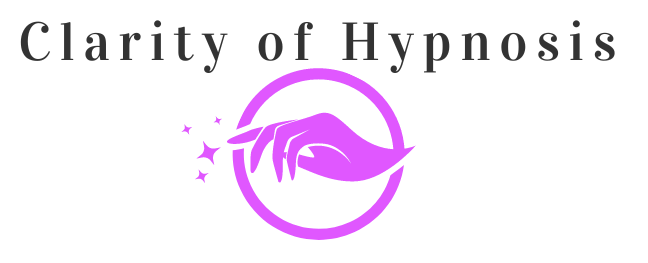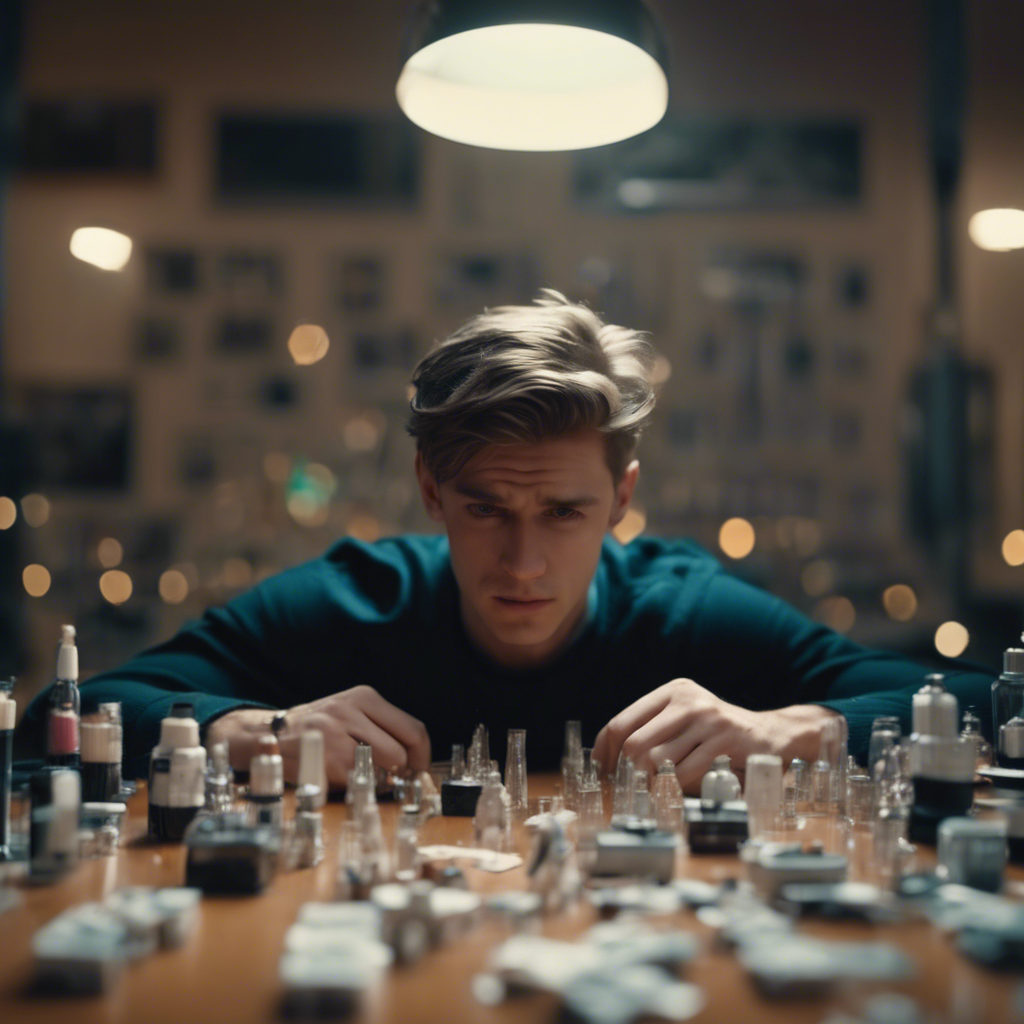Can Hypnosis Help with Obsessive-Compulsive Disorder (OCD) in Chesapeake, VA?
If you’ve ever felt trapped in a loop of unwanted thoughts or repetitive behaviors you can’t control — like checking the door lock over and over, washing your hands until they’re raw, or replaying distressing images in your head — you know how exhausting life with Obsessive-Compulsive Disorder (OCD) can be.
At Clarity of Hypnosis in Chesapeake, VA, we understand how relentless that cycle can feel. Our clinical hypnotherapy approach helps people find relief by retraining the mind’s patterns at their root — calming obsessive thoughts and reducing the anxiety that drives compulsive behaviors.
What Exactly Is OCD and Why Does It Happen?
Obsessive-Compulsive Disorder is a chronic mental health condition involving two key parts:
- Obsessions — intrusive, unwanted thoughts, fears, or urges that cause distress or anxiety.
- Compulsions — repetitive actions or rituals performed to relieve the anxiety caused by those obsessions.
For example, someone might fear contamination (an obsession) and respond by washing their hands repeatedly (a compulsion). The relief is temporary, and the cycle quickly restarts — creating a constant loop of fear, tension, and repetition.
OCD isn’t about perfectionism or being “a little particular.” It’s a neurobehavioral condition involving
overactive fear circuits in the brain, especially in areas that regulate threat response and decision-making.
Studies from the
National Institute of Mental Health (NIMH) and the
Mayo Clinic show that both
genetic factors and
life experiences (such as trauma, prolonged stress, or learned coping behaviors) can increase the likelihood of developing OCD.
What Can Trigger or Worsen OCD Symptoms?
OCD often flares up in response to certain life stressors or emotional triggers. Common examples include:
- Major life changes (divorce, job transitions, new parenthood)
- Traumatic events or unresolved guilt
- Family conflict or high-pressure environments
- Physical illness, fatigue, or hormonal changes
- Emotional distress like grief or anxiety
For some, OCD can also intensify during times of uncertainty — when the brain craves control.
In Chesapeake, many of our clients describe flare-ups during stressful work periods, after major health scares, or even during natural disasters like hurricanes, when feelings of safety and predictability are challenged.
How Does OCD Affect Daily Life?
OCD can quietly consume hours of your day. You might double-check things repeatedly, engage in counting or symmetry rituals, or mentally replay distressing thoughts you can’t turn off. Over time, these compulsions can:
- Interfere with work, school, and relationships
- Lead to physical exhaustion or pain (from repetitive behaviors)
- Cause embarrassment, shame, or social isolation
- Contribute to anxiety, depression, or sleep problems
Many people suffering from OCD in Chesapeake describe the experience as “being held hostage by their own mind.” Fortunately, clinical hypnotherapy offers a way to loosen those chains by calming the subconscious loops that drive these behaviors.
How Can Hypnosis Help Treat OCD at Its Core?
Hypnotherapy is not about “erasing thoughts” — it’s about changing your relationship with them. When conducted by a certified professional, hypnosis helps quiet the overactive fear response and reprogram subconscious patterns that sustain obsessions and compulsions.
Here’s how hypnosis helps:
- Deep Relaxation and Nervous System Reset
Hypnosis helps regulate the body’s stress response by activating the parasympathetic nervous system — lowering heart rate, reducing tension, and calming the fight-or-flight reflex that fuels compulsive behavior. - Reframing Obsessive Thought Loops
In a relaxed, focused state, your subconscious mind becomes more receptive to positive suggestion. You can learn to reinterpret intrusive thoughts as harmless background noise rather than urgent threats. - Reducing the Anxiety Behind the Behavior
Compulsions are anxiety management tools. By addressing anxiety directly, hypnosis makes those compulsive urges lose their emotional charge. - Building Confidence and Control
Through guided visualization and cognitive reframing, hypnosis helps you picture yourself remaining calm in triggering situations, reinforcing self-trust and emotional stability.
Research from the Cleveland Clinic, Harvard Medical School, and the American Psychological Association (APA) recognizes hypnosis as a clinically supported adjunct therapy for anxiety, trauma, and compulsive behaviors — all key components of OCD.
What Does a Hypnosis Session for OCD Look Like?
Each session at Clarity of Hypnosis is confidential and designed around your individual symptoms and goals.
Here’s what you can expect:
- Initial Consultation: We’ll discuss your triggers, fears, and daily experiences with OCD to tailor your treatment plan.
- Relaxation Induction: You’ll be guided into a calm, meditative state that allows deeper focus and openness to suggestion.
- Therapeutic Work: Your hypnotherapist may use visualization, timeline regression, or suggestion therapy to help you detach from obsessive thoughts and reduce anxiety.
- Empowerment & Integration: You’ll learn self-hypnosis techniques and relaxation exercises you can use anytime OCD urges arise.
Most clients describe feeling peaceful, alert, and safe — fully in control and able to remember everything afterward.
What Are Real People in Chesapeake Saying About Healing OCD with Hypnosis?
Sarah’s Story – Freedom from Endless Checking
Sarah, a Chesapeake schoolteacher, used to spend nearly an hour each morning checking locks and appliances before leaving home. After just a few weeks of hypnotherapy, she learned relaxation techniques that quieted her “what if” thoughts.
“It’s not that I never think about checking the stove — it’s that I don’t feel compelled to anymore. I can leave the house calmly, and that’s a huge win.”
David’s Story – Calming the Counting Cycle
David, a retired Navy veteran, struggled with repetitive counting rituals tied to anxiety about safety. Through guided hypnosis, he learned to replace his counting habit with mindful breathing.
“For the first time in decades, my mind feels quiet. I still notice the urge sometimes, but now I can let it go.”
What Does the Clinical Evidence Say About Hypnosis?
Modern neuroscience confirms what many of our clients already know from experience — hypnosis can retrain the brain’s fear response.
Stanford University 757-997-6290: MRI studies show hypnosis alters activity in brain regions involved in self-awareness and emotional regulation.
APA Division 30: Recognizes hypnosis as an empirically supported treatment for anxiety and stress disorders.
Cleveland Clinic: Notes that hypnosis can help manage obsessive behaviors by reducing physiological arousal and improving self-control.
When combined with traditional therapies like CBT or medication, hypnosis can accelerate progress and reduce relapse by calming the subconscious “alarm system” that drives OCD.
Why Choose Clarity of Hypnosis in Chesapeake, VA?
- Nearly 40 years of clinical experience helping clients overcome anxiety, OCD, phobias, and trauma.
- Client-centered approach: Every session is personalized and evidence-informed.
- Trusted expertise: Certified clinical hypnotherapist with training in cognitive and behavioral techniques.
- Safe and private environment: Sessions available both in-person and online for convenience.
Our goal is to empower you — not to control your thoughts, but to help you control how you respond to them.
Are You Ready to Quiet the Obsessive Thoughts and Break Free from Compulsions?
If you’re living in
Chesapeake, VA and struggling with obsessive thoughts or repetitive behaviors, hypnosis may be the breakthrough you’ve been searching for.
At
Clarity of Hypnosis, we’ll help you calm your mind, reduce anxiety, and regain control over your life.

